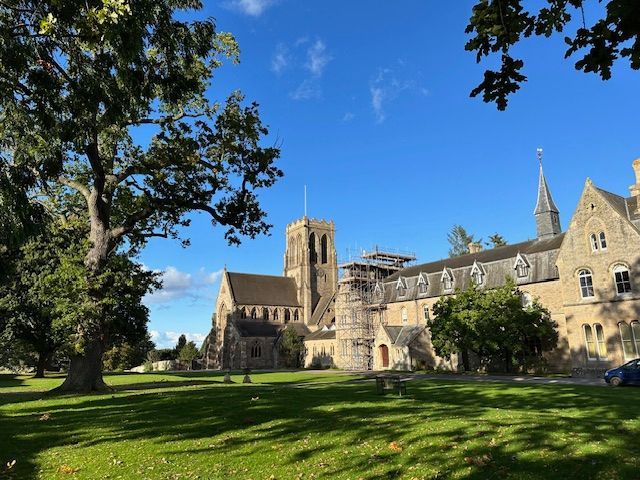
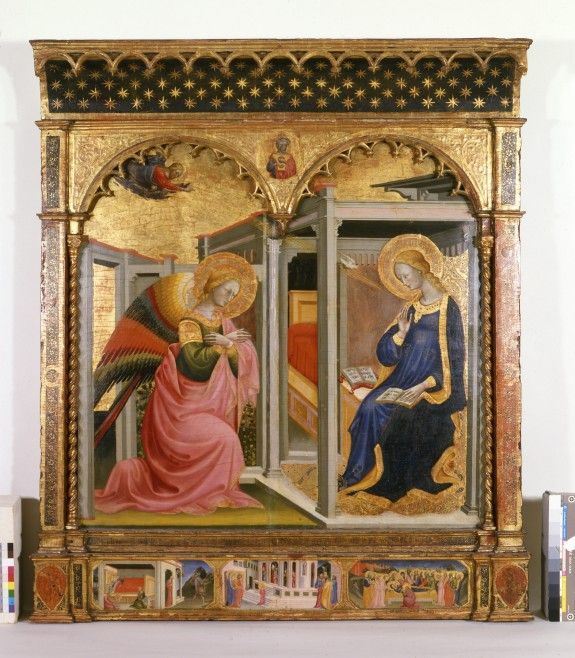

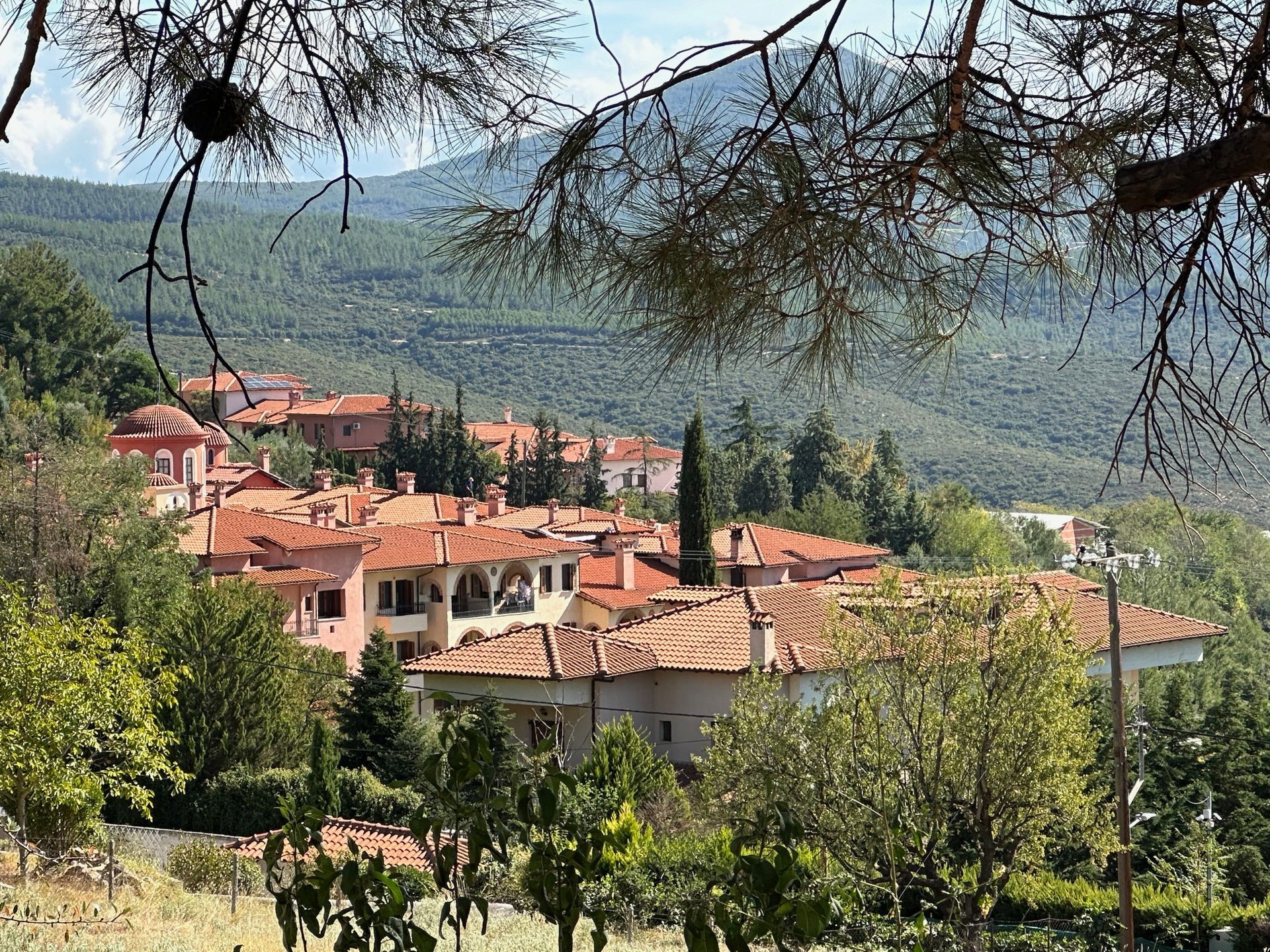

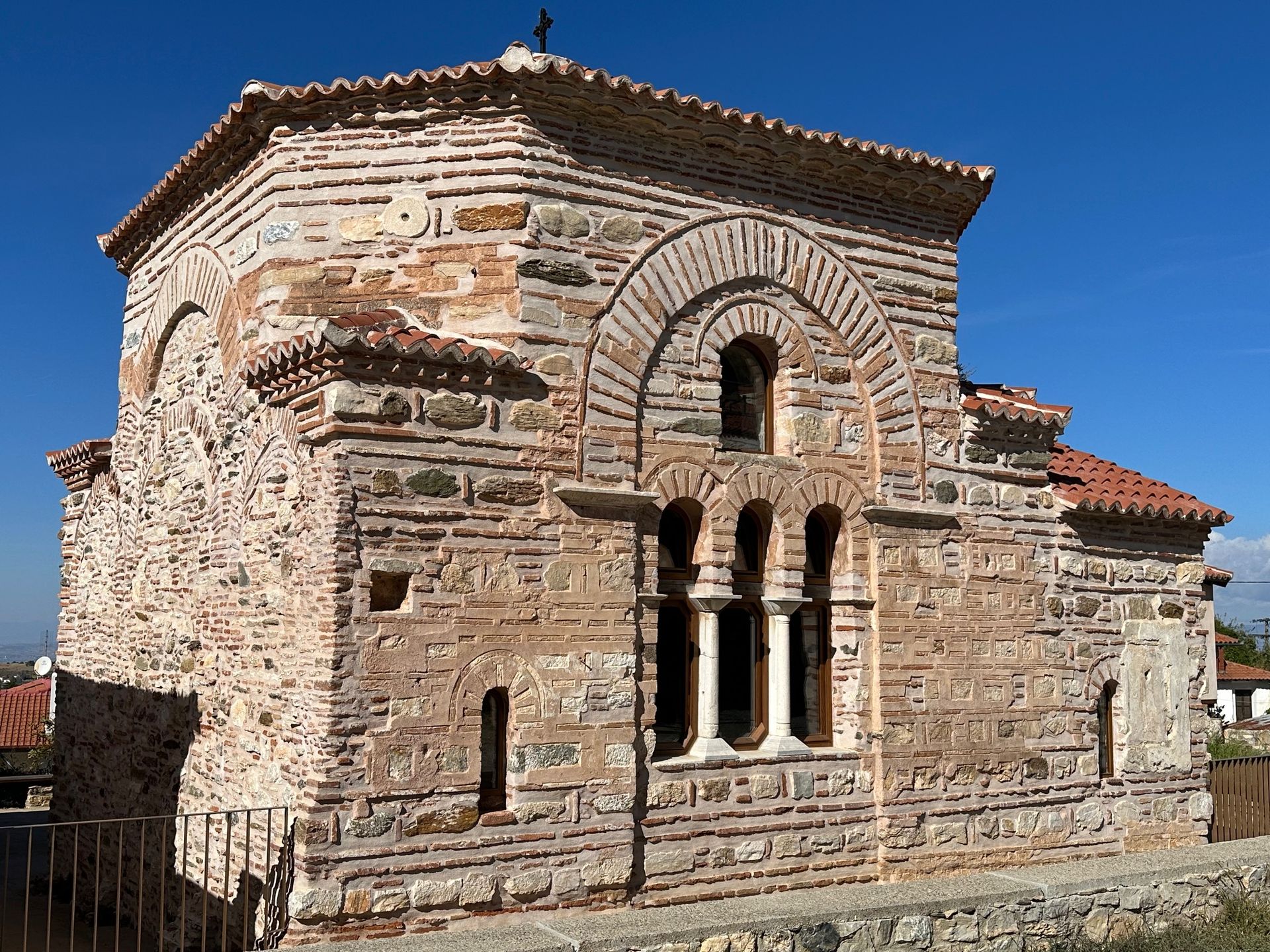

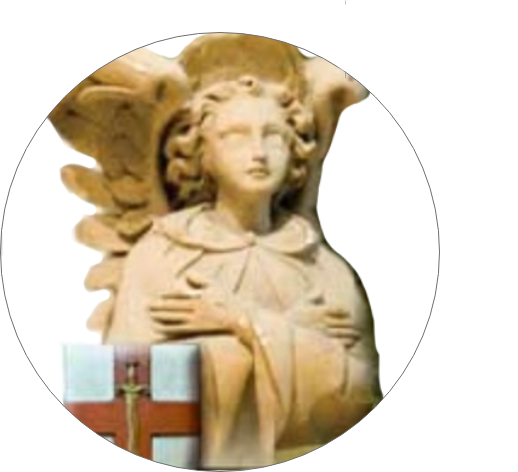
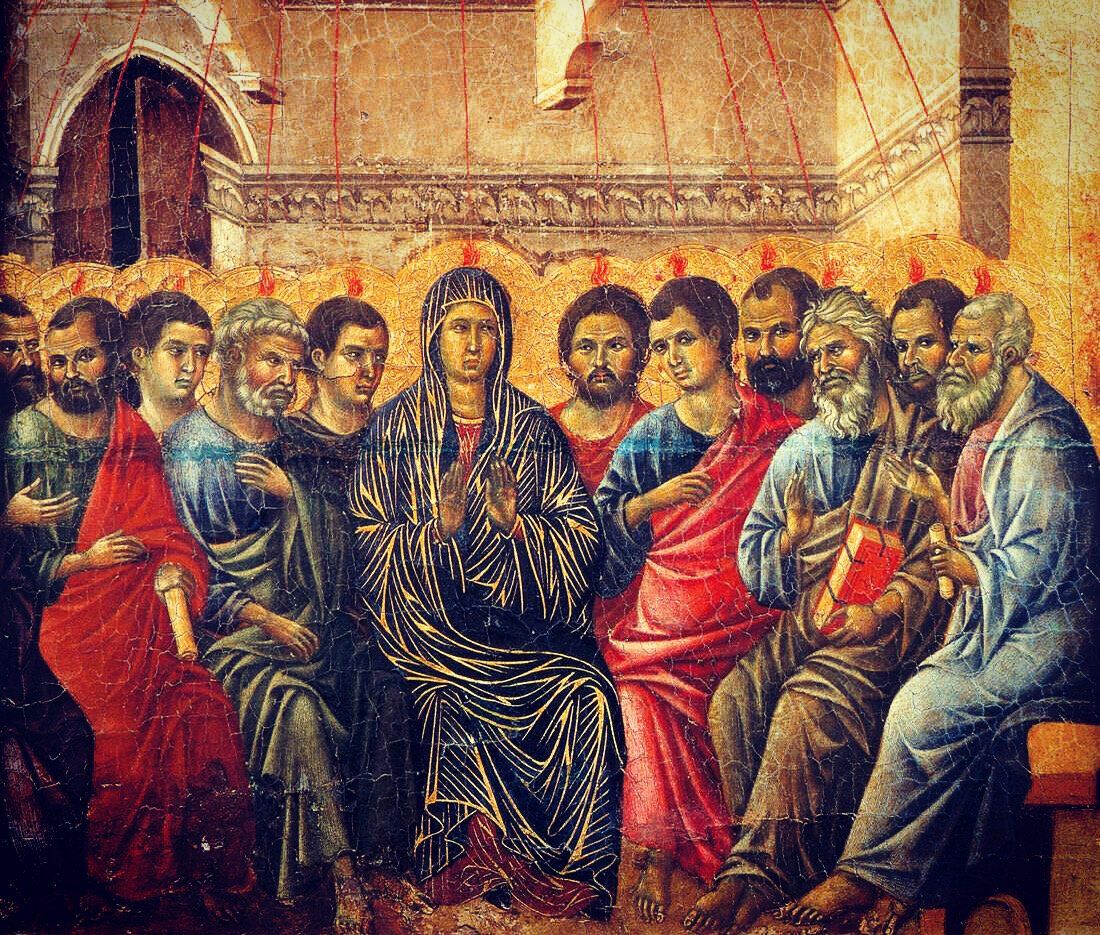
Today is the great feast of Pentecost, so instead of sending a simple message, I will share my homily with you. I hope you don’t mind.
We have just heard two accounts of the coming of the Holy Spirit. According to John, it was Jesus himself, who on Easter evening appeared in the room, where ten of the Twelve were gathered, and breathed on them saying, “Receive the Holy Spirit.” Through the Spirit’s presence in their lives, they will share in Christ’s passion and death, bring his peace to the world and have power over sin. Just as God’s creative breath gave life at the beginning of creation, so now, in the fullness of time, the Word made flesh gives new life to those who are born of water and the Spirit. “Of his fullness we have all received, grace in return for grace.”
According to Acts, the Spirit was given at Pentecost, seven weeks after Passover. The feast of Weeks was a pilgrimage feast when pious Jews would come to Jerusalem. While the disciples were there, they received the Spirit, manifested in the speaking of tongues. While John links the coming of the Spirit to the Paschal mystery, Luke, the author of Acts, links the outpouring of the Holy Spirit to the feast of Pentecost, thus highlighting its central place in the history of salvation.
Originally an agricultural festival of thanksgiving, Pentecost came to symbolise and celebrate the great things God had done for his people throughout history. Whereas the Exodus was commemorated at Passover, Pentecost came to recall God’s giving the covenant to Israel at Sinai, that key moment when Israel was called to be God’s own people. In Christ, a new Israel, a new people of God, the Church, comes into being through faith and baptism in the Holy Spirit. For Christians, Pentecost is a new creation.
In depicting the theophany on Sinai, the book of Exodus includes thunder and smoke. Philo, the first century Jewish writer, describes angels taking what God said to Moses on the mountaintop and carrying it out on tongues to the people below in the plain. Acts, with its description of the sound of a mighty wind and tongues of fire, echoes that imagery and so presents the new Pentecost in Jerusalem as the renewal of God’s covenant, once more calling a people, this time all peoples, to be his own. On Sinai God made his covenant with the people of Israel, whereas in Jerusalem many nations were present. Acts gives a long list of them, thus anticipating the evangelising work of the early Church. “All flesh will see the glory of God.”
So when did the Holy Spirit come, at Easter or at Pentecost? The truth is that, like the waves of the sea, the Spirit is always coming. According to John, the Spirit had not been given, as Christ had not yet been glorified. The coming of the Spirit is linked to the glorification of Jesus. And yet, from the very beginning of creation, the Spirit was there just as the Word was there. “All things were made through him and without him was not anything made that was made.”
Christ’s work was to recapitulate all things in himself and reconcile all men with God. He did this through the power of the Spirit, the same Spirit he gave to his disciples when he breathed on them saying, “Receive the Holy Spirit.” And it was the same Spirit the first Christian community received at Pentecost, with the mission to preach the Gospel throughout the world, bringing everyone to salvation through faith in Jesus Christ. Since then, the constant prayer of the Church has been “Veni, Sancte Spiritus” – Come, Holy Spirit. We should use that prayer always. When we pray for grace and mercy, it is the Spirit we are asking for. In every sacrament, it is the Spirit at work and the Spirit we receive. God created us to be filled with his Spirit and so become one with him. Today we thank God for his love and open our hearts to receive once more his greatest gift. Come, Lord Jesus. O Holy Spirit, come. Amen.
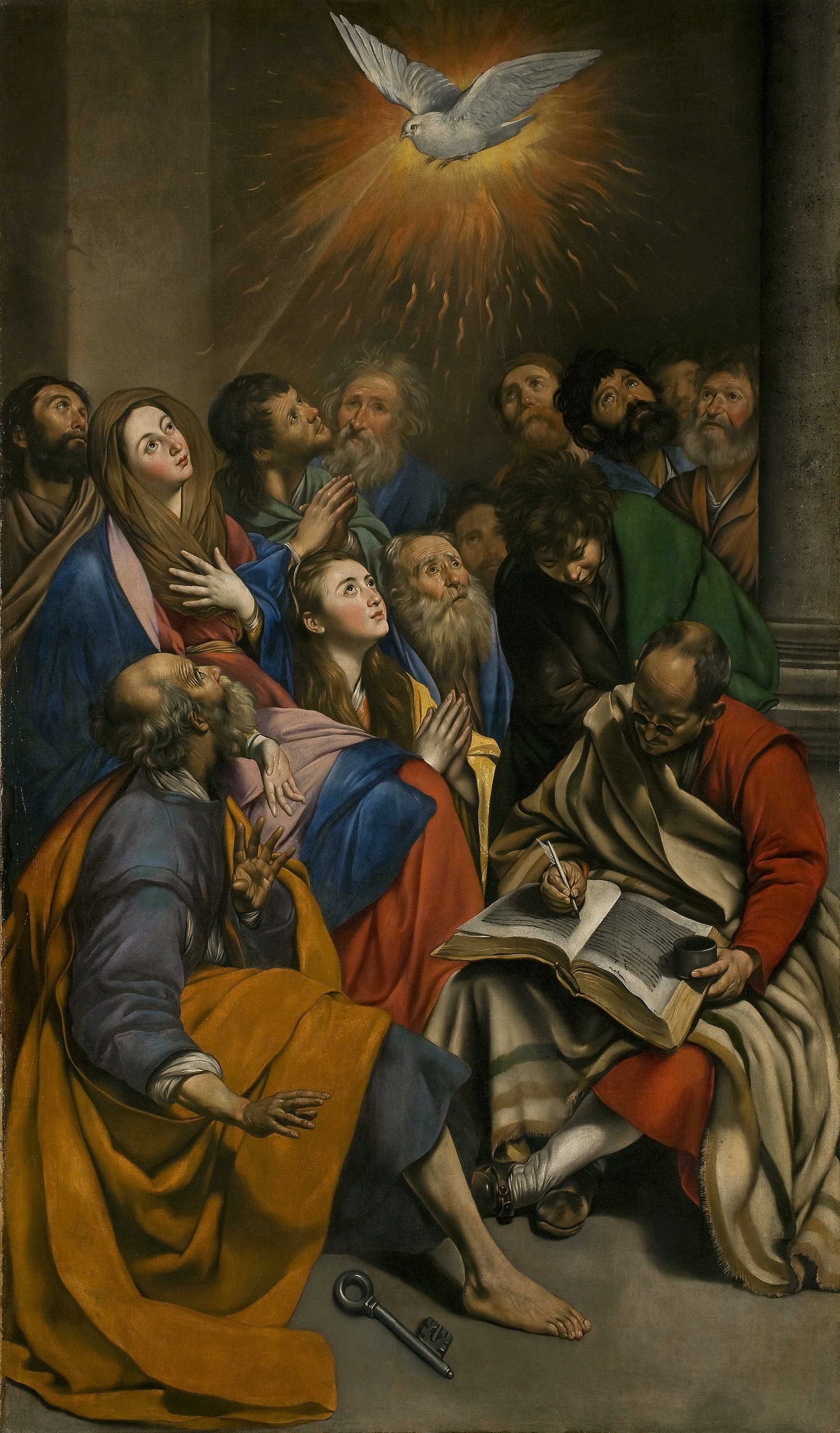







Copyright © 2019 - Parish of St Michael and All Angels, Belmont Abbey, Hereford
Belmont Abbey Parish is part of Belmont Abbey Mission CIO (registered charity number 1191221)
Website design by: Every Day Christian Marketing